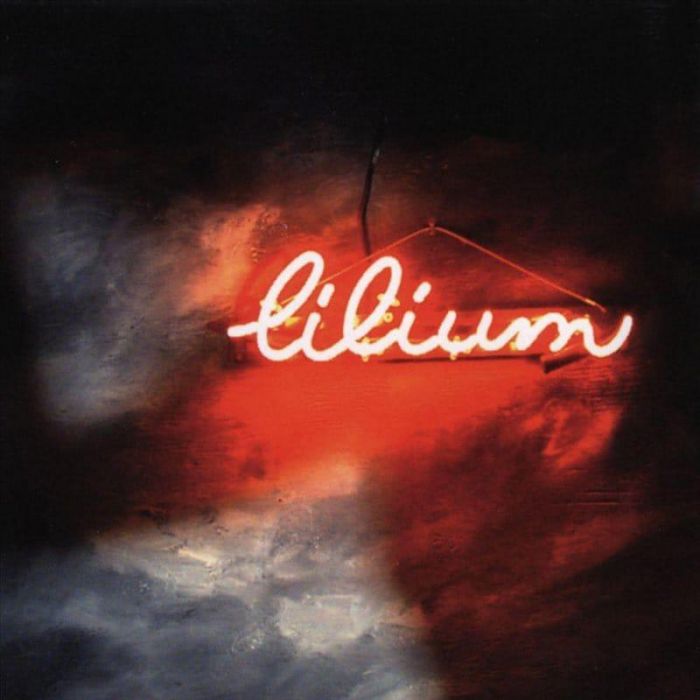Transmission of All the Good-Byes by Lilium (Review)

The word “Lilium” shines on the cover of Transmission of All the Good-Byes as a neon light — the kind you might find hanging on the wall of some hole-in-the-wall drinking establishment located on the edge of a long-forgotten stretch of Arizona highway. And it’s that very sort of locale, something rundown and beaten, long-forgotten and faded, that is evoked by Lilium’s dark, slightly ominous, and cinematic soundscapes.
Of course, this should come as no surprise, seeing as how Lilium’s founding member, Pascal Humbert, has played in 16 Horsepower. But Lilium is his gig, and unlike 2003’s Short Stories, Transmission of All the Good-Byes is almost entirely a solo affair, with only a handful of contributions. Even so, this album offers up a diverse palette of sounds, even if they’re almost entirely of the dark and foreboding type.
The mood is quickly set by “Sleeping Inside”; several dusty, down-on-their-luck guitar melodies pick their way through sepia-toned scenery and faded photographs, bolstered only by a clarinet (courtesy of Dang Head) whose breathy strains only add to the worldweariness.
Now I know I tend to bandy the word “cinematic” around a lot, especially when attempting to describe instrumental music of a decidedly evocative sort, but only because there’s considerable truth to it. It’s next to impossible to listen to such music and not imagine it accompanying scenes from movies, be they ones that have played on the silver screen or only within your mind.
It’s difficult to imagine “Beginning of the Water Line,” with its anxious atmospheres and reverbed guitar, as anything other than some sort of opening theme. Preferably for a Twin Peaks-esque show set around that aforementioned hole-in-the-wall, whose denizens prop themselves up against a table and try to drown their sordid pasts. Meanwhile, it’s counterpart, “End of the Water Line,” might play equally well as the closing theme for the same program. That, or the turgid wah guitars and eerie organ might also serve as the music announcing the arrival of shady characters, be they hero or villain, onto the scene.
“Loveless Road” has a certain sense of doom and desperation about it, as all “last stand” themes should. The song is driven forth by the insistent drumming of David Strayer, which keeps the anxious guitar lines and accordion-like wheeze marching towards their inevitable fate.
Whereas Short Stories featured several stellar vocal contributions, including David Eugene Edwards (16 Horsepower/Woven Hand) and John Grant (The Czars), Transmission of All the Good-Byes is almost entirely instrumental except for “Goodbye Llano,” which features the ghostly, wordless wails of Ezster Balint. Her banshee-like voice seems a bit too operatic at times, but not too much so, and certainly fits within the mood Humbert is seeking to create.
The album closes with the title track, which immediately stands out because there’s ‘nary a guitar, dobro, banjo, or other such instrument to be found. Composed entirely of somber organs and synths, as well as the occasional tolling bell, it sounds less like any of the acts to whom Lilium is normally compared, and more akin to something you’d expect from Golgotha-era Controlled Bleeding — which is to say, something entirely funereal and gloomy.
Which, thematically, places it right alongside the rest of this album.